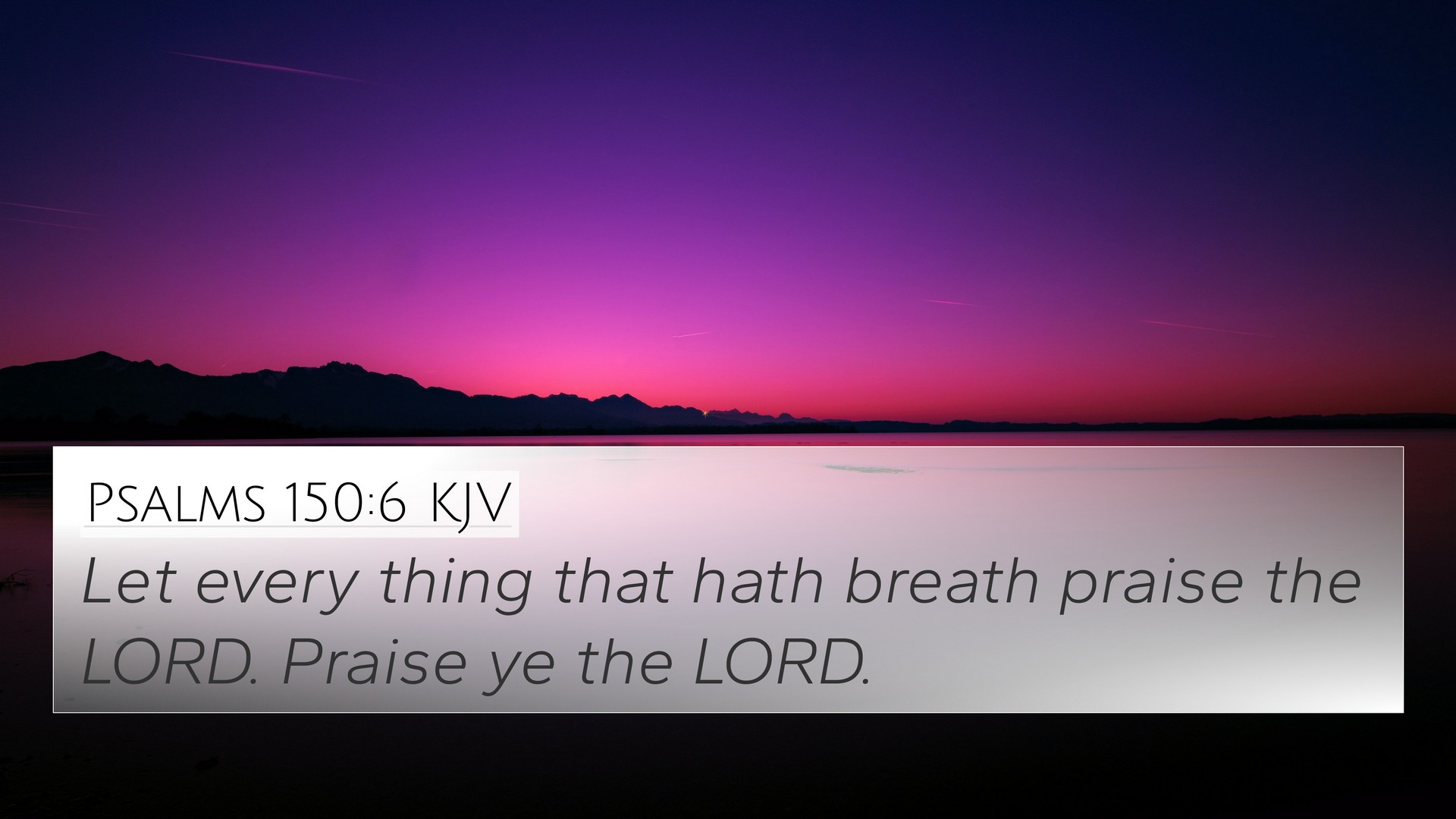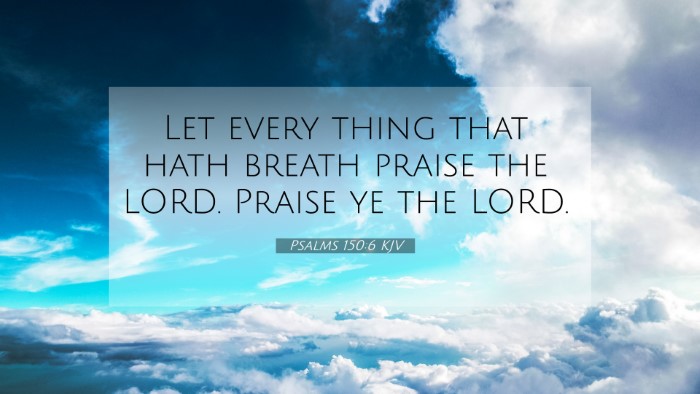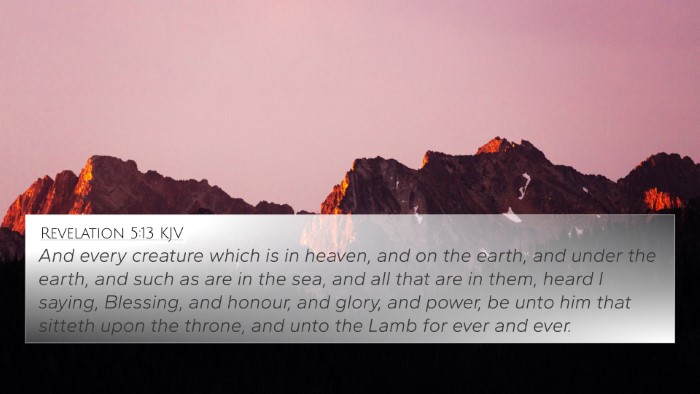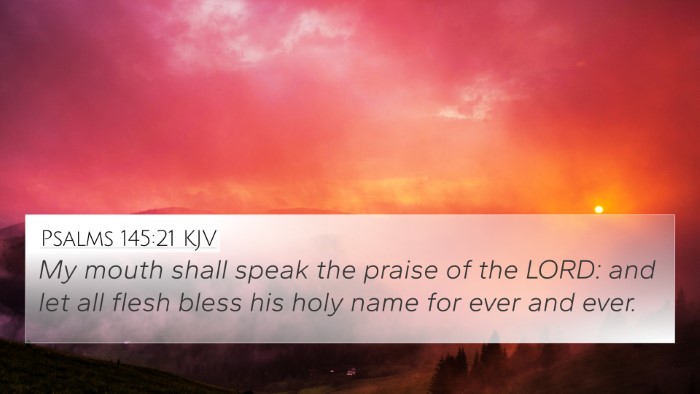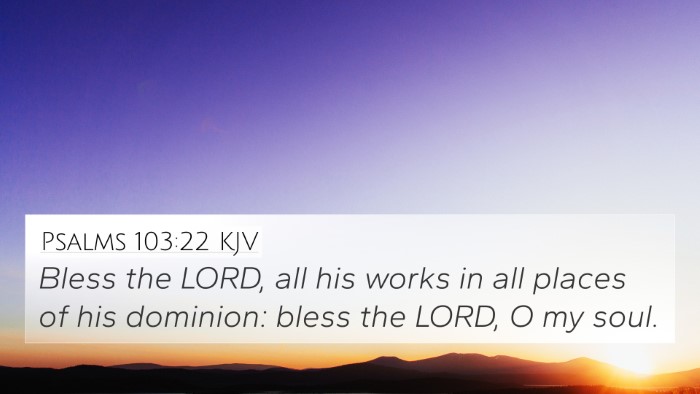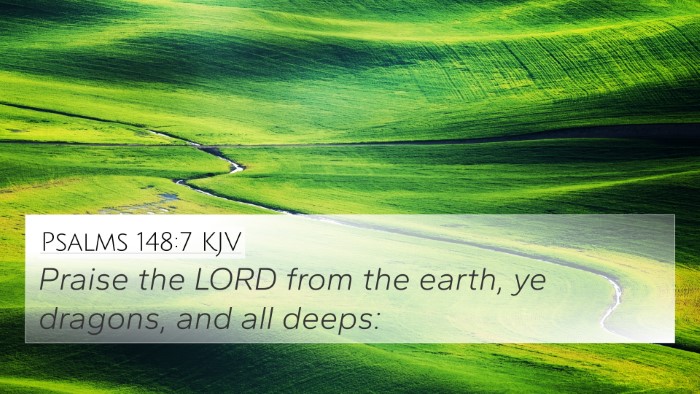Psalms 150:6 - Summary and Interpretation
Verse: "Let everything that hath breath praise the LORD. Praise ye the LORD."
Psalms 150:6 encapsulates the essence of all creation's responsibility to praise God. This call to worship reflects a theme prevalent throughout the Scriptures.
Understanding the Meaning
The final verse of the Psalms serves as an enthusiastic and universal call to praise God. It emphasizes the idea that all living beings are called to worship the Creator. Such exuberance for praise is a fitting conclusion to the Book of Psalms, which is filled with songs of worship, penitence, and adoration.
Insights from Public Domain Commentaries
-
Matthew Henry:
Henry reflects on the universality of this call to worship, underscoring that every creature endowed with breath should engage in praise. He highlights that praising God is not merely a human obligation but a divine appointment for all living beings.
-
Albert Barnes:
Barnes elaborates on the expression "everything that hath breath," indicating that it includes both humans and animals, emphasizing the constant call for creation to acknowledge God's greatness.
-
Adam Clarke:
Clarke points out the significance of breath in this context, as it symbolizes life itself. He connects this verse with the notion that worship is an act of recognizing the life-affirming power of God.
Connections to Other Bible Verses
This verse serves as a pivotal node for thematic cross-referencing within the Scripture. Below are selected verses that echo its sentiment and reinforce the message of universal worship:
- Psalms 96:1-4: "O sing unto the LORD a new song: sing unto the LORD, all the earth." This passage invites all the earth to join in worship.
- Isaiah 42:10: "Sing unto the LORD a new song, and his praise from the end of the earth." This verse echoes the call to praise from all corners of creation.
- Colossians 3:16: "Let the word of Christ dwell in you richly...singing with grace in your hearts to the Lord." This New Testament parallel makes connections between the psalmist's call and Christian worship.
- Revelation 5:13: "And every creature which is in heaven, and on the earth, and under the earth, and such as are in the sea, and all that are in them, heard I saying, Blessing, and honor, and glory, and power, be unto him that sitteth upon the throne." This passage shows that praise is a universal concept spanning both time and space.
- Hebrews 13:15: "By him therefore let us offer the sacrifice of praise to God continually." It emphasizes continuity in worship similar to what is called for in Psalms 150:6.
- Luke 19:40: "And he answered and said unto them, I tell you that, if these should hold their peace, the stones would immediately cry out." A reminder that all creation is called to praise, including inanimate objects.
- Philippians 2:10: "That at the name of Jesus every knee should bow, of things in heaven, and things in earth, and things under the earth." It reinforces the universality of worship and reverence due to God.
Thematic Connections
Psalms 150:6 can be understood within various themes in Scripture. The overarching theme is one of due glory and honor towards God:
- Creation's Response: All of creation is understood to have a role in proclaiming God's glory, which is elaborated upon in verses like Romans 1:20 and Job 12:7-10.
- Joy in Worship: Throughout the Psalms, the act of praising God is often accompanied by joy, pointed out in Psalms 100:1-2 and Nehemiah 8:10.
- Inclusion of All Beings: The universal nature of worship as seen in Psalms 150:6 aligns with other scriptures that emphasize worship by all beings, such as Job 38:7 which speaks of the morning stars singing together.
Cross-Referencing Tools and Methods
To delve deeper into the connections between Biblical texts, one may utilize various tools:
- Bible Concordance: A valuable resource to find topics and related verses.
- Bible Cross-Reference Guide: Guides that provide insights into how verses relate.
- Bible Chain References: A method of thematic study linking verses together systematically.
Conclusion
Psalms 150:6 stands as a resounding decree for all of creation to praise the Lord. It ties together the themes of worship, life, and the inherent responsibility of existence to acknowledge the Creator. Through comparative Bible verse analysis, this verse opens up pathways to deeper understanding and spiritual enrichment.
